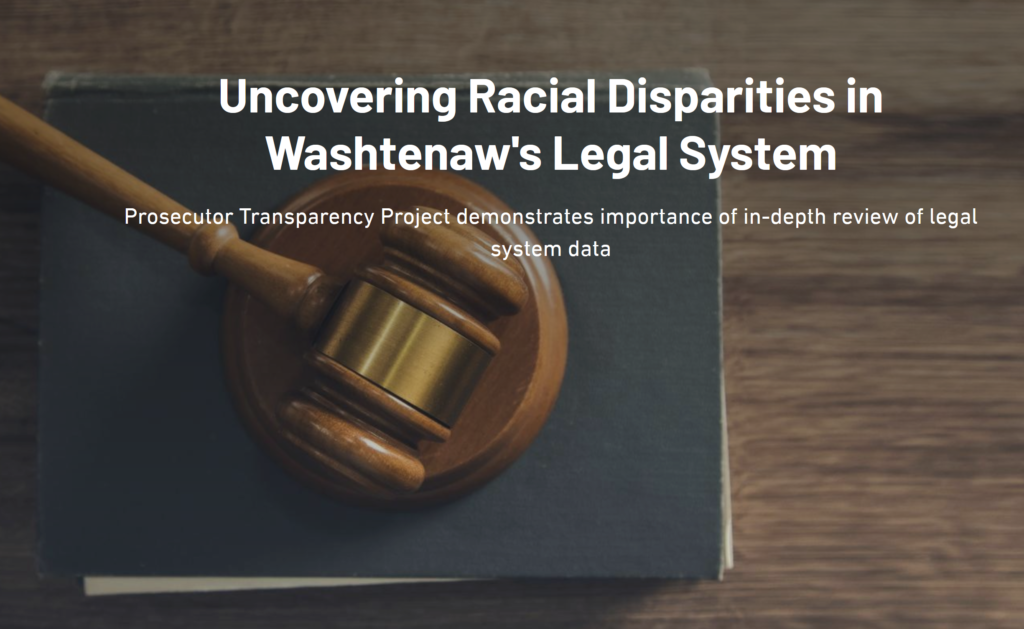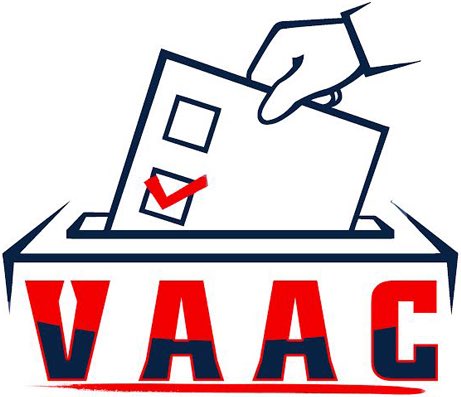
Findings include that law enforcement agencies in Washtenaw County are over four times more likely to seek criminal charges against Black people than white people, according to a report released by the prosecutor’s office.
The multi-year analysis of racial disparities in the county, the “Prosecutor Transparency Project,” was released on Friday and conducted by the Washtenaw County Prosecutor’s Office, ACLU of Michigan, and University of Michigan.
The study looked at 35,000 cases files between 2017 and 2022.
The report found that Black people appear in 49.9% of police requests for criminal charges during that time span, but make up only 12.2% of Washtenaw County residents. By comparison, white people appear in 47.8% of charging requests and make up 70% of the county’s population.
Read the full article on FOX2 Detroit here.
The excerpt below is from the Introduction of the Report which can be found here:
The criminal legal system should provide accountability for people who threaten public safety, respect the rights of crime victims and defendants, and treat people fairly regardless of their race, ethnicity, or socioeconomic status. However, in Washtenaw County, there is evidence that people of color have different encounters with the legal system than white people.
As part of the Prosecutor Transparency Project , the University of Michigan analyzed cases referred to the Washtenaw County Prosecutor’s Office from 2017 to 2022. That analysis found the largest racial disparity occurred in requests to file charges received by the prosecutor’s office from local law enforcement. Black people appear in 49.9% of requests for charges between 2017 and 2022 but make up only 12.2% of county residents. By comparison, white people appear in 47.8% of requests for charges and make up 70% of the county’s population. This suggests the demographic composition of the cases that come into the prosecutor’s office are a significant driver of previously observed racial disparities in Washtenaw County’s criminal legal system.
The analysis also points to some evidence of racial disparities in the following areas:
- The prosecutor’s office was 0.7 percentage points more likely to authorize charges for defendants of color than for white defendants in similar circumstances between 2017 and 2022, which was largely driven by a disparity in 2019;
- Defendants of color were charged with crimes having maximum sentences 2.15 months longer than white defendants in similar circumstances between 2017 and 2022, with statistically significant disparities that are larger in 2018 and 2020;
- Among eligible defendants, white people were more likely to be designated as habitual offenders, which means longer maximum sentences; and
- Defendants of color faced 0.05 more charges per case on average than white defendants in similar circumstances between 2017 and 2022.
The analysis did not find evidence of racial disparities in the following areas:
- In acceptance into a pre-plea diversion program, nor
- In granting Holmes Youthful Trainee Act (HYTA) status, which allows young defendants to avoid a criminal record.
Data limitations make it impossible to construct a reliable analysis of a representative sample of plea bargains in the Washtenaw County Prosecutor’s Office. The preliminary analysis of plea-bargaining decisions that was conducted, however, did not find evidence of racial disparities.
The Prosecutor Transparency Project demonstrates the ways data collection and analysis can help identify disparities in the criminal legal system and inform action to promote equity, fairness, and harm reduction. To allow for a better understanding of the impact of decisions made at each stage in the criminal legal system, more prosecutors’ offices, law enforcement departments, and courts need to participate in transparent data sharing and analysis.

Leave a Reply